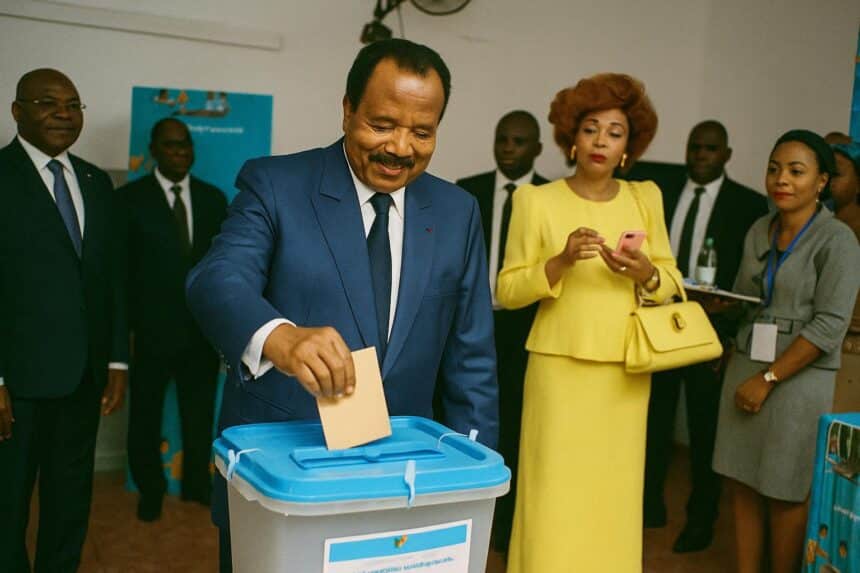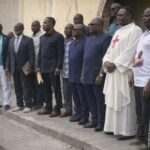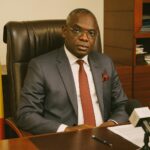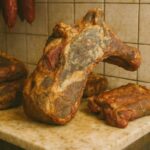A nonagenarian president and the succession question
On 13 February 2024 President Paul Biya will mark his ninety-first birthday, an anniversary that places him among the world’s most enduring heads of state. For Cameroon, the celebration is less about cake than about the delicate arithmetic of an eventual transfer of power.
The next presidential election is scheduled for October 2025, yet insiders from Yaoundé to Douala whisper that politics may accelerate the calendar. Few diplomats discount the possibility of a palace-led adjustment should the president’s schedule, or health, collide with growing generational impatience.
At stake is the leadership of Central Africa’s linguistic crossroads, a nation whose cohesion still depends on the carefully balanced persona of a leader who has ruled since the early Reagan era. Observers agree that institutional resilience, not charisma, will soon be put to test.
Security pressures on two restive fronts
Security planners identify two burning fronts. In the Far North, cells allied to Boko Haram continue low-intensity raids despite joint operations with Nigeria and the Multinational Joint Task Force (United Nations reports, 2023). Meanwhile, the Anglophone Northwest and Southwest remain gripped by sporadic separatist ambushes.
Elite Rapid Intervention Battalions, often trained by Israeli advisers, hold terrain but at considerable fiscal and reputational cost. The sustained deployment diverts resources from social programmes and feeds perceptions of a security state, even though major urban centres remain largely insulated from daily combat.
Economic anchors and structural fault lines
Cameroon’s economy, valued at roughly USD 45 billion by the IMF, still anchors the Central African franc zone. Hydrocarbons from Kribi, bauxite prospects in Adamaoua, and an emerging agro-industrial belt ensure positive growth figures that outpace several regional peers (IMF Country Report, 2024).
Yet prosperity is uneven. A Francophone urban middle class benefits from banking, real estate and timber concessions, while Anglophone regions grapple with disrupted trade corridors. The private sector fears that abrupt succession could unsettle investor sentiment just as the planned 2027 LNG expansion seeks financiers.
Timber royalties, especially from the dense forests bordering the Republic of Congo, remain politically sensitive. Conservationists warn that opaque concession renewals risk undermining Cameroon’s commitment under the Central African Forest Initiative, yet officials counter that regulated logging is indispensable to funding road projects and post-pandemic health programmes across rural districts.
Party mechanics and the calculus of heirs
The Cameroon People’s Democratic Movement, lineal heir to Ahmadou Ahidjo’s single party, retains a nationwide network that can still mobilise municipal chiefs and youth leagues. Its cohesion, however, now depends less on ideology than on access to administrative rents and the unspoken authority of the presidency.
Within the palace, First Lady Chantal Biya exerts philanthropic and ceremonial influence that extends into rural women’s associations. Her origins outside the Beti clan elicit polite debate, yet seasoned courtiers note her deft command of protocol and her pragmatic alliances with senior security officials.
Attention also follows Franck Biya, the entrepreneur son whose low public profile belies active engagement with the ruling party’s youth wing. Some diplomats interpret his visibility at official receptions as succession rehearsal; others suspect the symbolism aims mainly at reinforcing investor belief in continuity.
Regional stakes and external partners
Neighbouring capitals monitor Yaoundé closely. Abuja seeks a partner able to police a porous frontier, while N’Djamena regards Cameroon as gateway to Atlantic markets for Chadian crude. In Brazzaville, President Denis Sassou Nguesso carefully safeguards cordial channels that buffer regional finance flows in the CFA zone.
Traditional French engagement persists through military cooperation and corporate presence in agro-industry, though Paris today shares the stage with Beijing’s infrastructure investments and Moscow’s expanding media narrative. Analysts recall that any abrupt shift in Yaoundé could recalibrate great-power influence across Central Africa’s volatile security arc.
Washington, mindful of human-rights clauses in the African Growth and Opportunity Act, calibrates criticism of the Anglophone conflict while maintaining counter-terrorism cooperation. The European Union focuses on maritime security in the Gulf of Guinea. All converge on one priority: a predictable transition that avoids refugee flows.
Possible pathways toward 2025 transition
Several scenarios circulate in diplomatic cables. The first projects President Biya completing his mandate and unveiling a consensus successor at the RDPC congress in 2024. The second envisages a constitutional revision elevating the Senate president in case of incapacity, a mechanism already encoded in the 1996 charter.
A third, more speculative, outlook points to armed forces arbiters. Officers inside the Rapid Intervention Battalions enjoy public esteem for battlefield discipline; their chiefs nevertheless signal loyalty to civilian order. So long as barracks salaries rise with inflation, few embassies predict a Khartoum-style break in hierarchy.
Whatever course emerges, legitimacy will depend on inclusive dialogue with Anglophone leaders, credible electoral management and fiscal transparency. Cameroon’s partners privately urge the palace to choreograph succession early, arguing that a managed hand-over, rather than a hurried scramble, offers the best guarantee of national and regional stability.






















